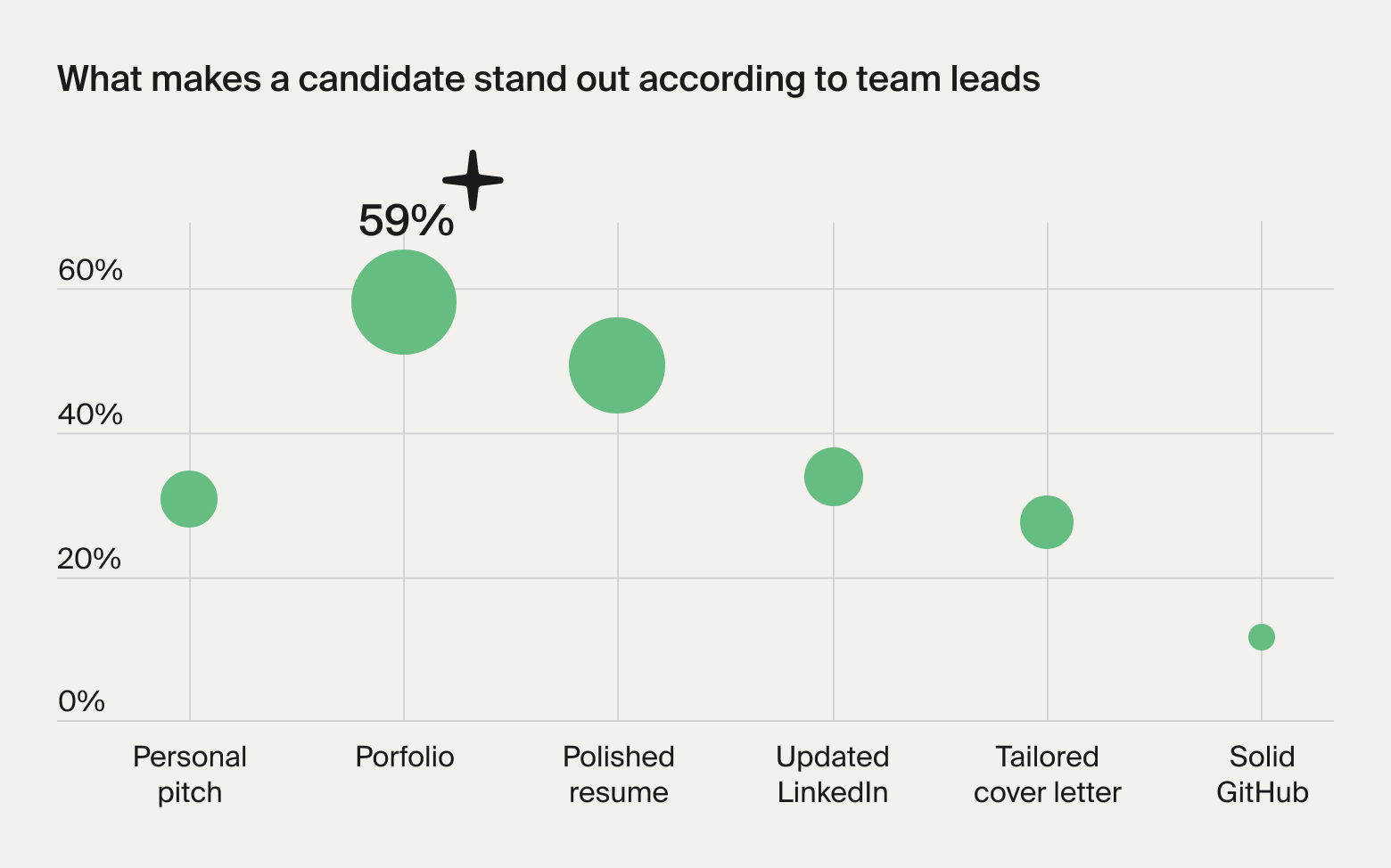You crossed the stage, accepted your degree, and shot pictures you could buy from a photographer for extortionate amounts. You celebrated with loved ones, happy with the wisdom you gained at your four-year university or college. By all accounts, it was a grand day.
But now it’s a few weeks later. The real world is demanding you do something. It’s been a challenge to land a full-time job with just your summer internships and bachelor’s. Maybe you should go for a master’s degree? Maybe you should try getting a part-time job in your field?
It’s confusing. And it begs the question:
What do you do after college?
So let’s get into it. Your multi-year institution might have had some professional prep courses. But they were likely optional, and they might have seemed superfluous. After all, you had a 5,000-word essay on semiotics vis-a-vis Magritte due at midnight, and it was 10:12. Career development could wait.
Don’t get us wrong — that just means you engaged in college’s prime focus: learning. Here’s where we see the core difference between college and bootcamps, and it’s the key reason why they’re worth your time when you’re a fresh grad.
A bootcamp is about employment
Colleges and universities have started portraying themselves as job-training institutions. But at their core, they’re still focused on what they’ve always been focused on: imparting knowledge, pure and simple. And this knowledge is indeed useful in the labor market, but it’s not the point of higher education.
The point? Producing wiser, more well-rounded, informed individuals who can apply context and critical thinking to their lives and historical moment.
Naturally, this capacity makes you a more attractive candidate for employment, but it’s not a get-hired package in and of itself. That takes more than just the general education you might get as part of a four-year degree. And that’s where a bootcamp comes in.
That’s the entire point of coding bootcamps.
They are staffed by industry experts who know the precise knowledge that is in demand, and because of this, you finish your time at a bootcamp with a certificate that attests to the fact that you have the capabilities and background that employers are looking for.
And guess what? We have the stats to prove it.
A bootcamp after college: what our stats say
Here’s the first number for you: 87%. That’s the percentage of our grads who get hired within six months of finishing the bootcamp according to our Outcomes Report. We can break that down even more, though.
We’ll just emphasize what this says: half of TripleTen students land jobs before they even graduate.
Why is that? Well, we can turn to another valuable resource: Breaking into Tech: Employer Secrets for Success, our report for which we surveyed over 1,000 decision makers. It paints a clear picture.
First, these respondents were unambiguous. Nearly eight out of ten said that they already hire candidates without traditional backgrounds.

And 86% of people surveyed expressed that they were either confident or very confident about hiring bootcamp grads. In fact, decision makers in the tech industry were more likely to report that they were “very confident” as opposed to just “confident” about hiring bootcamp grads.
So the explanation for the high placement rate is the simple fact that employers want to hire bootcamp graduates.
We know that begs the next question, though: why are employers so enthusiastic about bootcamp graduates? Yeah, we have some data here, too. Spoiler: it’s all about what we mentioned earlier, a bootcamp’s focus on teaching the skills people actually need in a real-world tech job.
Let’s take a look at one more graphic.

We asked those same hiring decision-makers what they looked for in candidates. Leading the pack were hard skills — think programming languages and digital tools. Coming in second, and just slightly less impactful than hard skills, were soft skills — communication and problem solving skills, for example.
You see where we’re going: this is the exact mix of know-how that bootcamps impart. And the way learning is structured at a bootcamp ensures that when people land jobs in tech, they’re already familiar with common approaches.
Often, companies work on a sprint structure, meaning there are a set number of tasks to be accomplished within a two- to three-week period, but how and when those items are tackled is up to the individual.
This is the precise strategy TripleTen puts into practice — learning at the bootcamp is constructed around a philosophy of sprints. And after many of these sprints, you’ll have a new project to put in your portfolio.
And this is another way bootcamps make their grads more attractive to employers. When you graduate from a bootcamp, you already have a robust portfolio in hand. In our survey, team leads highlighted that portfolios helped candidates stand out.

After many of the sprints you go through at a bootcamp, you’ll have a project completed — be it an algorithm, a site, an app — and when you approach a hiring manager, you’ll be able to point to all the things you accomplished as a verification of your tech bona-fides.
These in-demand skills and the proof you’ve put them into practice are powerful lines in a resume. In fact, even someone with a bachelor’s degree in computer science might not have a comparable application.
These are the precise things that a bootcamp focuses on to help you launch a fruitful, rewarding career in tech. And learning tech doesn’t mean you don’t have to abandon the knowledge you gained at college.
What do people do after college? Explore and learn coding
Take Jake McCambley, for example. He studied psychology in college, applied this knowledge to wilderness therapy in Utah, and then in a chance encounter, realized that he could enroll in a coding bootcamp to expand his impact.
After gaining new skills at TripleTen, he knew he wanted to use his tech know-how to make a difference. “I wanted to work somewhere related to mental health or related to conservation, somewhere that I felt like was going to be doing good in the world,” he said.
Soon, he discovered a company building software to connect people with the therapy they need. He reached out to the CEO and founder. “I wrote a cover letter to her just explaining, ‘Hey, I’m passionate about mental health. I’m passionate about building products that help people,’ and she responded, saying, ‘Let’s chat on the phone.’”
After a few interviews, he landed the job. He’s been there ever since, unifying the expertise he gained in his undergraduate degree with the hard and soft skills TripleTen taught him.
The practicalities of what to do after college
Okay now that we’re all inspired, it’s time for the rougher part of the article. You might not want to think about this if you’re fresh from college, but student debt is a real thing. Soon enough, it will start coming due.
Let’s assume you have the average student debt — $37,088. If you choose to pay off a loan that has 4.66% interest over ten years, you’d be on the hook for $387 a month, and, ultimately, pay a total of $46,469. That’s nearly $10,000 accumulated in interest alone.
And rent. You’re going to have to pay to live somewhere. The average rent payment across the US is $1,713, but if you want to be in a big city, you’re going to have to pay much more. New York? The average one-bedroom apartment will cost $3,645 a month. Los Angeles? That’s $2,068 for a similar place.
If you earned the median of 25- to 34-year-olds with bachelor’s degrees, $61,600, here’s what your expenses would look like, assuming the previously mentioned figures for rent and debt repayment:
And then food. And then taxes. And then…
We’ll stop there. If you’re reading this, you likely already viscerally understand the point we’re making: your degree wasn’t cheap. Rent isn’t cheap. The typical salary you earn in the twelve years following graduation does indeed put you in a better situation than people with only high school diplomas, but you’re not exactly comfortably well-off.
It might be time to consider gaining the skills that can earn you a salary that can reach as high as $89,300 for TripleTen Data Science Bootcamp grads. In fact, most of these people are just starting a career in tech, meaning that’s the entry-level salary they’re earning. Once they get some experience, that number can skyrocket.
What to do after a bachelor’s degree: a caveat
Now that your nerves are good and jangled and you’re considering renting a cardboard box in Lower Manhattan’s Cortlandt Alley for $600 a month (a steal!), it’s time to take a step back.
Life is for living.
So far, we’ve been talking about what to do after college strictly in terms of money. And, don’t get us wrong, it does matter. But there are other types of experiences that can be worth your time and energy right after college in ways that dollars can’t adequately measure.
Maybe taking a year to, say, teach English in a new culture would bring you new perspectives that would stay with you for the rest of your life. Maybe spending time working on that wild business idea could really pay off.
Taking a year to pursue your curiosity or passion might give you experiences that bring you satisfaction, insight, or self-actualization, even if that doesn’t directly convert into more dollars earned.
Here’s the thing, though: that added experience might just make you a better candidate down the line anyway. See, it’s not impossible that you decide to go for a coding bootcamp after your time teaching English abroad, and that when you’re applying for your first software engineering job, your international experience gives you a leg up because the company has teams across the globe and wants people with skills in cross-cultural communication.
And if you decide that your wild business idea is no longer practicable after spending a year pursuing it, you’ll still have a valuable background that can amplify your chances of landing a job after going through our Business Intelligence Analytics Bootcamp.
The benefits of going to a coding bootcamp after college
But in both those examples, a tech bootcamp still played a part. And like we’ve been talking about, there are good reasons to enroll. Here’s a recap.
- You increase your earning potential
- You gain the skills employers are looking for
- You build a professional portfolio
- You learn from industry experts
- You amplify your ability to pursue your passions
- You receive guidance from seasoned career coaches
What should I do after college? See if a bootcamp is right for you
Sound like the right thing for you, but want to make sure? We’ve got just the thing for you. Take our self-assessment quiz to see if a bootcamp is your best way to boost your career.

%20(1).avif)





.webp)





.avif)

